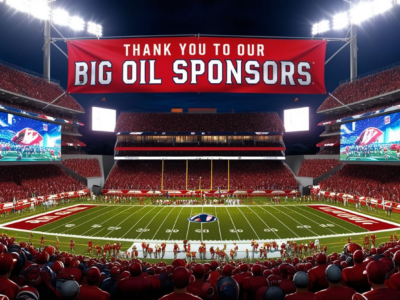Finally Cleaning Up In the Galilee

Residents of northern Israel got a welcome victory a couple of days ago: the nation’s High Court held that Eitanit Construction Products, a politically well-connected firm that polluted cities across the region with asbestos, must pay half the cost of cleaning it up.
Friable asbestos contaminating whole cities might be a dim memory in the United States, but in Israeli cities like Nahariya, it remains all-too-common:
“As far as disease levels are concerned, Nahariya is like Chernobyl,” [Nahariya mother Orit] Reich claims. “Hundreds of workers at the plant and residents, some of them very young, have gotten sick and died. Many family members of plant workers also became sick, because the workers would come home with clothing contaminated with asbestos fibers. People live in a constant state of anxiety because the cancer caused by asbestos can incubate for 40 years.”
Her claims are supported by 2009 figures from the Health Ministry’s National Cancer Registrar. The Nahariya area has the second-highest incidence in the world of mesothelioma, a rare form of cancer that is caused mostly by exposure to asbestos. Experts fear the incidence of the deadly disease in the city will increase in the years to come because of its long incubation period.
The incidence rate of mesothelioma in the Acre region, which includes Nahariya, was 5.72 per 100,000 residents in 2002-2008, compared with 0.55 per 100,000 in the Tel Aviv region.
After years of exposure, and after an intimidating lobbying campaign by Eitanit, the Knesset finally passed a law mandating that asbestos producers pay for half of the cleanup. That hardly solved anything, for the company immediately went to court, claiming that the contamination wasn’t its fault — it was the fault of all the people who used it or worked with it, you see. How could a company that produced asbestos, well known to be a contaminant, have had any idea that maybe it would, well, contaminate?
The High Court had none of it, holding Eitanit responsible. Until I can get an English translation, it’s not clear to me whether the liability was fault-based or whether, as in the landmark case of Beshada v. Johns-Manville Products Corp., strict liability for failure to warn of asbestos’ dangers was at issue, or whether it was a simple strict liability case. In any event, as the editorial board of Ha’aretz noted, because “the court widened the scope of the law and said companies must be held responsible for every stage of the production process, from raw material to refuse,”
[t]he ruling could and should have far-reaching implications for Israel’s environment. According to the principle set by the court, state institutions and local authorities will be able to demand that waste producers and industrial plants take responsibility for activity that generates a negative impact on the environment.
Very good to see, no matter what your views of the Israeli-Palestinian conflicts or Middle East politics more generally.
I’m not a totally disinterested party here. I serve on the board of the Friends of Israel’s Environment, a group of Americans who support the work of Adam Teva V’din — Israel Union for Environmental Defense, sort of the Israeli equivalent of NRDC, and in my totally unbiased and completely objective opinion, the nation’s best and most effective environmental organization. But the reason why I do it is because of cases like this. IUED led the legislative advocacy campaign to get the original bill enacted, and then brought the lawsuit to win the court judgment. These are the times when I am particularly proud to be associated with it.
 And oh: reward good behavior.
And oh: reward good behavior.







2 Replies to “Finally Cleaning Up In the Galilee”
Comments are closed.